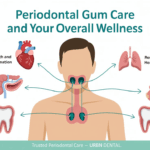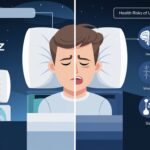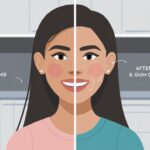Diagnosis of Cracked Tooth Syndrome
Lots of people suffer from a cracked tooth. Any part of your tooth may get cracked for various reasons — dental decay, injury, serious impact, or other reasons. The crack may or may not be visible to the naked eye. In some cases, the cracked tooth may also cause serious pain, even if you can’t see it. If you suspect that you have a cracked tooth, you must schedule an appointment with a dentist open on Saturday near me for immediate diagnosis of cracked tooth syndrome. If you don’t treat a cracked tooth immediately, it will eventually expand and lead to other issues. In this article, we discuss the diagnosis of cracked tooth syndrome and how to treat a cracked tooth at a dentist’s open on Saturday near me.
What to do when you’ve cracked a tooth?
If you’ve cracked your tooth, you must schedule an appointment with an emergency dentist near me. Cracked teeth can indicate a dental emergency in some cases, while they may not indicate emergencies in other cases. As mentioned previously, you may or may not be able to see the crack, which is why you need to first learn how to identify the severity of the cracked tooth syndrome.
In some cases, dental cracks are harmless and don’t require treatment. However, the following symptoms indicate that you need to see a dentist office near me soon:
- You experience pain while eating or chewing.
- Your gums are swollen around the cracked tooth.
- Your teeth are sensitive to sweets.
- Your teeth are sensitive to hot and cold sensations.
- There’s general discomfort around your teeth and gums.
- You experience persistent or sporadic toothaches.
While none of the aforementioned situations indicate the presence of dental cracks, they are signs that you should consult a dentist for a diagnosis. If you’re experiencing the aforementioned problems, you must be suffering from some dental issue — even if it’s not a dental crack. Dental cracks can occur for various reasons such as biting on hard foods, grinding your teeth excessively, physical injury, or the presence of a large filling that weakens your tooth’s structure.
Cracked teeth can often be really hard to diagnose. If the dental crack isn’t immediately visible, the dentist will have to conduct a diagnosis of cracked tooth syndrome through these methods:
- They’ll ask you about your dental history and symptoms.
- The dentist will use a magnifying glass to closely examine your teeth for minor signs of fracture or cracks.
- The dentist may use a dental explorer, which is a pointed instrument that catches on any rough cracks. This will help them identify dental cracks.
- The dentist may also ask you to rinse with a dental dye to reveal the cracks.
- The dentist may also ask you to bite down on a piece of paper or check your gums for signs of inflammation.
- Finally, the dentist may also take an x-ray. Even though an x-ray can reveal cracks, it can reveal issues in the pulp chamber, which can help you identify a dental crack.
If you do have a cracked tooth, the dentist will identify the severity of the crack or fracture to determine how to treat it. The treatment for cracked teeth generally include the following:
- Gluing the chipped or broken part of the tooth.
- Using composite resin to repair the crack — the procedure is called bonding.
- Sealing the crack with a dental filling.
- If your tooth is seriously cracked, the dentist may attach a dental crown over the tooth to cover it up and protect it from damage.
- If the crack has gone deep inside the pulp chamber, you may also need a dental extraction.
What to do if your tooth is knocked out?
If your tooth is knocked out, you should do the following:
- Hold the tooth by the crown and gently rinse it with water. Don’t hold the tooth by the roots or scrub it because that may damage the roots and tissues.
- If your entire tooth has come off, reposition it into the empty socket. You can hold it by the tooth crown and gently push it in place. Hold the tooth in place either with your finger or biting down on it.
- If you can’t place the tooth inside the socket, keep it in an airtight container with some emergency tooth preservation kit or milk. You must keep the tooth wet but don’t use regular water as it may damage the tooth.
- Go to an endodontist or dentist as soon as possible. If you reach them within 30 minutes, there’s a strong chance that they’ll reattach your tooth.
What are the causes of a fractured molar tooth cusp?
The following are some potential causes of a fractured molar tooth cusp:
- Teeth grinding.
- Large fillings.
- Chewing or biting hard surfaces or foods.
- A sudden impact to the mouth due to an accident, fistfight, sports injury, etc.
- Sudden changes in temperature within your mouth because of what you’re eating.
- Age.
What causes tooth pain under a crown?
Tooth pain under a crown may occur if you damage the crown through various acts like teeth grinding, sudden injury or impact, or other factors. If the tooth crown comes loose, bacteria may enter under the crown, eventually infecting the tooth. As such, your tooth may start throbbing and hurting, leading to nerve pain.
Schedule your Dental Appointment Today
URBN Dental is one of the best emergency dentist near me in Houston, Texas. If you have a cracked tooth, we’ll examine it and treat it using the best and least invasive methods possible. Our priority is to save as much of the cracked tooth as possible. For more information, please schedule our dental appointment today.
Summary:
Lots of people suffer from a cracked tooth. Any part of your tooth may get cracked for various reasons — dental decay, injury, serious impact, or other reasons. The crack may or may not be visible to the naked eye. In some cases, the cracked tooth may also cause serious pain, even if you can’t see it. If you suspect that you have a cracked tooth, you must schedule an appointment with a dentist office open on saturday for immediate diagnosis of cracked tooth syndrome. URBN Dental is one of the best emergency dentist near me in Houston, Texas. If you have a cracked tooth, we’ll examine it and treat it using the best and least invasive methods possible. Our priority is to save as much of the cracked tooth as possible. For more information, please schedule our dental appointment today.















